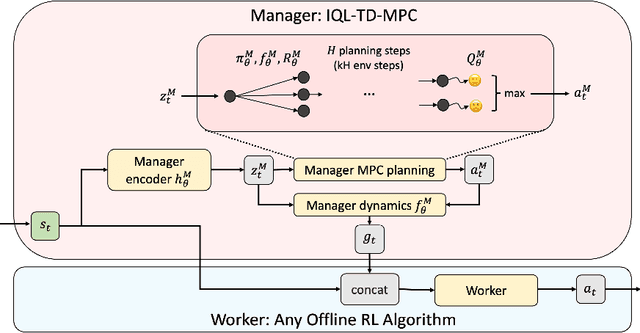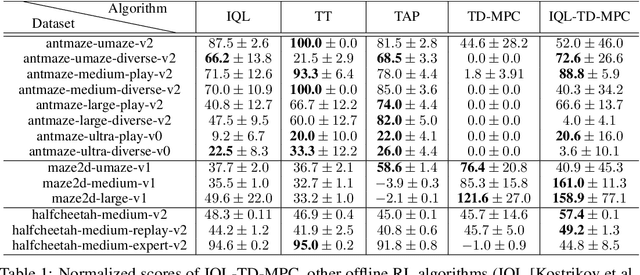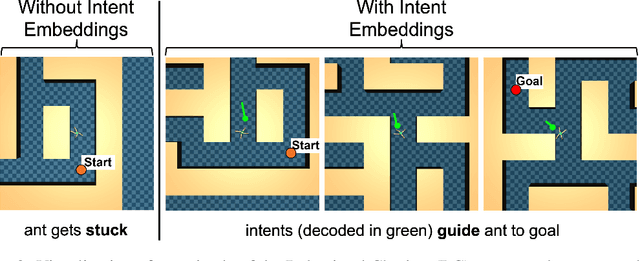Bobak Hashemi
IQL-TD-MPC: Implicit Q-Learning for Hierarchical Model Predictive Control
Jun 01, 2023



Abstract:Model-based reinforcement learning (RL) has shown great promise due to its sample efficiency, but still struggles with long-horizon sparse-reward tasks, especially in offline settings where the agent learns from a fixed dataset. We hypothesize that model-based RL agents struggle in these environments due to a lack of long-term planning capabilities, and that planning in a temporally abstract model of the environment can alleviate this issue. In this paper, we make two key contributions: 1) we introduce an offline model-based RL algorithm, IQL-TD-MPC, that extends the state-of-the-art Temporal Difference Learning for Model Predictive Control (TD-MPC) with Implicit Q-Learning (IQL); 2) we propose to use IQL-TD-MPC as a Manager in a hierarchical setting with any off-the-shelf offline RL algorithm as a Worker. More specifically, we pre-train a temporally abstract IQL-TD-MPC Manager to predict "intent embeddings", which roughly correspond to subgoals, via planning. We empirically show that augmenting state representations with intent embeddings generated by an IQL-TD-MPC manager significantly improves off-the-shelf offline RL agents' performance on some of the most challenging D4RL benchmark tasks. For instance, the offline RL algorithms AWAC, TD3-BC, DT, and CQL all get zero or near-zero normalized evaluation scores on the medium and large antmaze tasks, while our modification gives an average score over 40.
LHC analysis-specific datasets with Generative Adversarial Networks
Jan 16, 2019



Abstract:Using generative adversarial networks (GANs), we investigate the possibility of creating large amounts of analysis-specific simulated LHC events at limited computing cost. This kind of generative model is analysis specific in the sense that it directly generates the high-level features used in the last stage of a given physics analyses, learning the N-dimensional distribution of relevant features in the context of a specific analysis selection. We apply this idea to the generation of muon four-momenta in $Z \to \mu\mu$ events at the LHC. We highlight how use-case specific issues emerge when the distributions of the considered quantities exhibit particular features. We show how substantial performance improvements and convergence speed-up can be obtained by including regression terms in the loss function of the generator. We develop an objective criterion to assess the geenrator performance in a quantitative way. With further development, a generalization of this approach could substantially reduce the needed amount of centrally produced fully simulated events in large particle physics experiments.
 Add to Chrome
Add to Chrome Add to Firefox
Add to Firefox Add to Edge
Add to Edge